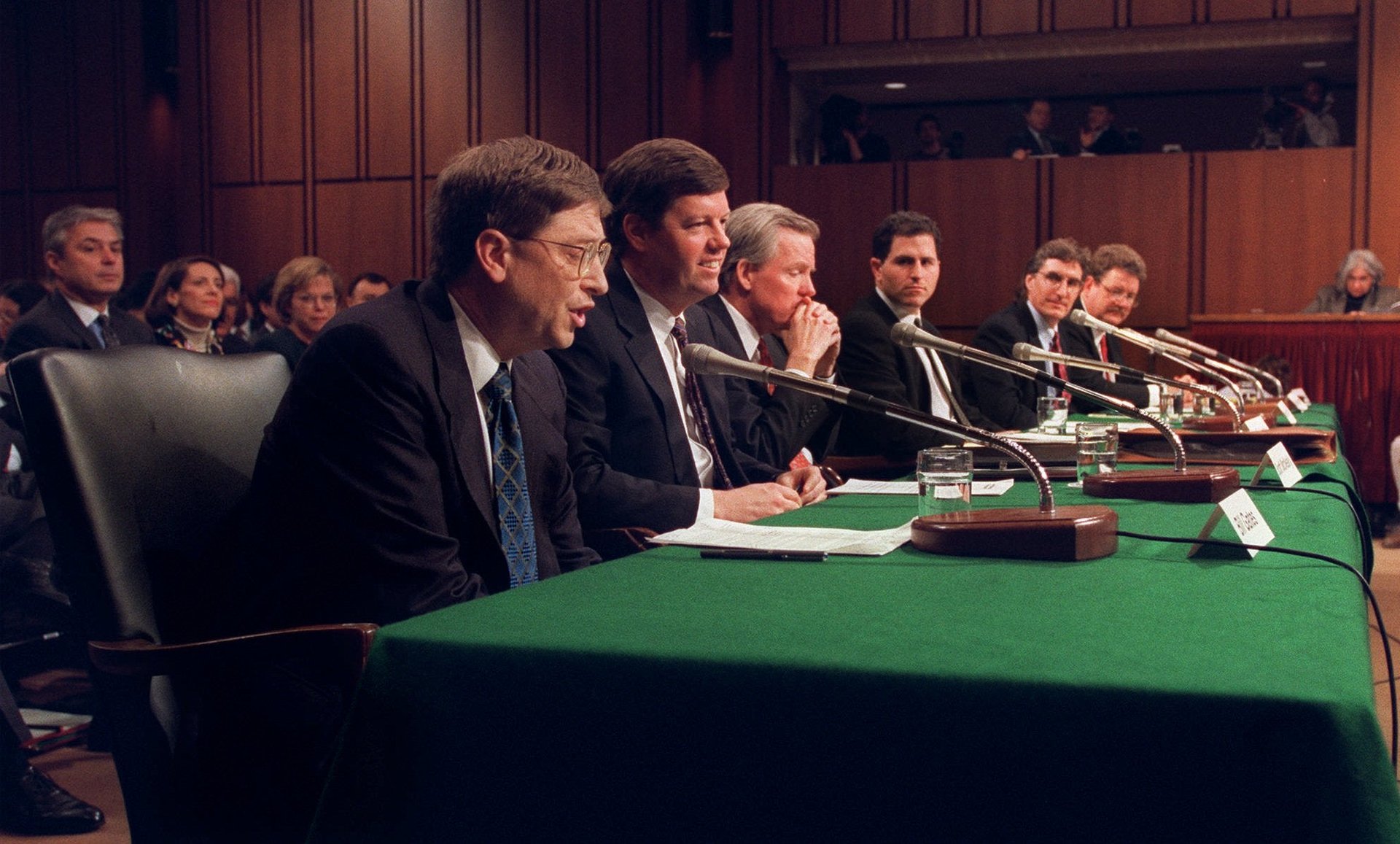The 17 years since the Microsoft antitrust case taught us that regulation can spur innovation
Seventeen years ago today (June 28), the world’s richest man breathed a sigh of relief.


Seventeen years ago today (June 28), the world’s richest man breathed a sigh of relief.
Bill Gates and Microsoft, the company he dropped out of Harvard to found 25 years prior, were embroiled in a multiyear lawsuit with the US government over antitrust claims. The justice department argued that Windows’s dominance of the computer operating system market let Microsoft unfairly favor its other products, like Internet Explorer.
(If that sounds familiar, similar allegations were made against Google, which was slapped with a $2.7 billion fine from the European Union last year for using its search tool to favor its Google Shopping results over competitors’.)
In June of 2000, a judge in the US district court for the District of Columbia ruled that Microsoft should be broken up into two separate units—one for Microsoft’s operating system and another for its software products. In June of 2001, an appeals court disagreed.
“While there are some aspects of this ruling on which we didn’t prevail, we continue to believe that we face significant competition every day and we must continually improve our products in order to succeed,” Microsoft wrote in a statement following the decision.
(If that sounds familiar, Facebook CEO Mark Zuckerberg made a similar argument in his April Senate hearing, stating that “the average American uses eight different apps to communicate with their friends,” while struggling to name any direct competitors.)
The Microsoft case set a precedent for not breaking up big tech companies, but also prohibited Microsoft from tying Internet Explorer to Windows. This allowed other browsers like Netscape and Firefox to compete on computers that ran the Windows operating systems, and curbed Microsoft’s power, effectively creating room for upstarts like Google and Facebook to grow.
“Google, the tiny start-up, would have faced an unfair fight against Bing. Microsoft-Myspace might have become the default social network instead of Facebook. And who knows whether Netflix or any other online video service would have been started?” Connecticut senator Richard Blumenthal and Columbia Law professor Tim Wu wrote in an op-ed for The New York Times earlier this year.
Seventeen years later, the companies who have benefited from the Microsoft ruling are the ones under scrutiny. Companies like Facebook and Google have made the case that regulation might actually hinder innovation. But a look back at the history of the tech industry shows that innovation and regulation are cyclic: Even Microsoft was the beneficiary of another antitrust case against IBM in the early 1980s.
The common trope in Silicon Valley is that tech regulation is bad for the economy. Companies like Uber scorn laws which they feel are outdated, and recently scooter companies like Bird and Lime have opted to ask for forgiveness rather than permission when launching in new cities. The case is often made that the Wild West of the early web created an environment for startups to flourish. But, as we saw with the Microsoft case, regulation can also be a tool to spur economic development. Legislation like section 230 of the Communications Decency Act, which shields tech companies from the responsibility of what happens on their platforms, something that has massively benefitted the likes of Facebook, or Google’s YouTube, exemplifies how the law can help—not hurt—innovation.
It’s impossible to know exactly how the world would look if Microsoft’s power had not been curtailed, but we do know that today people have a buffet of browsers to choose from when using Windows. The companies that were able to grow in a more competitive tech ecosystem have created jobs and pushed the industry forward. And Microsoft, though not the dominant force it once was, is still the third-most valuable company in the world.
Now that a new generation of tech giants has risen, it may be time for government to step in once again.